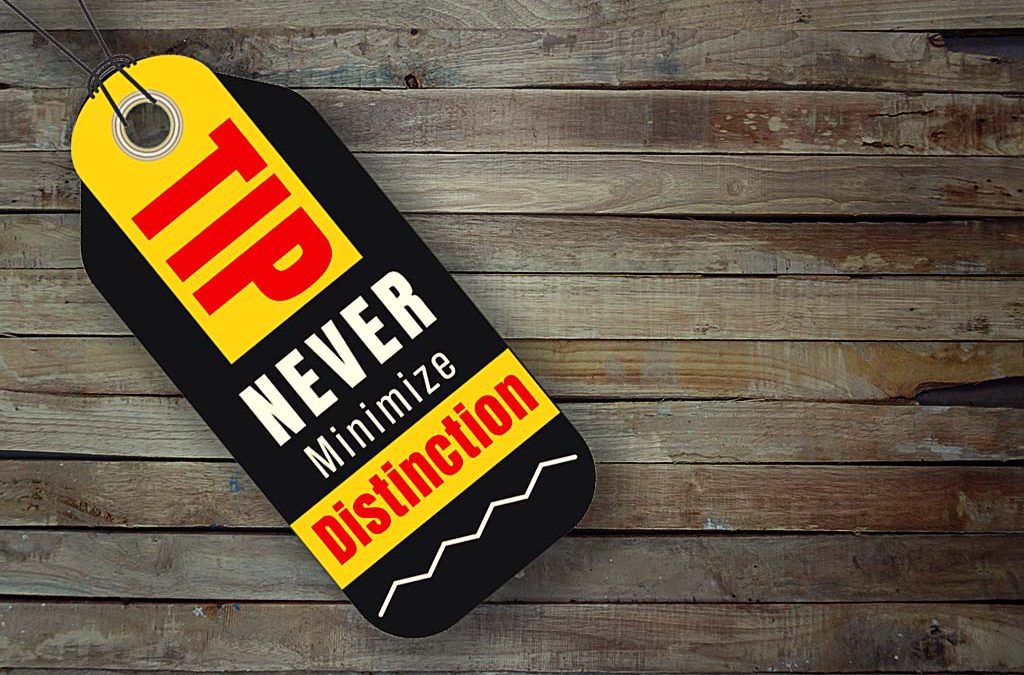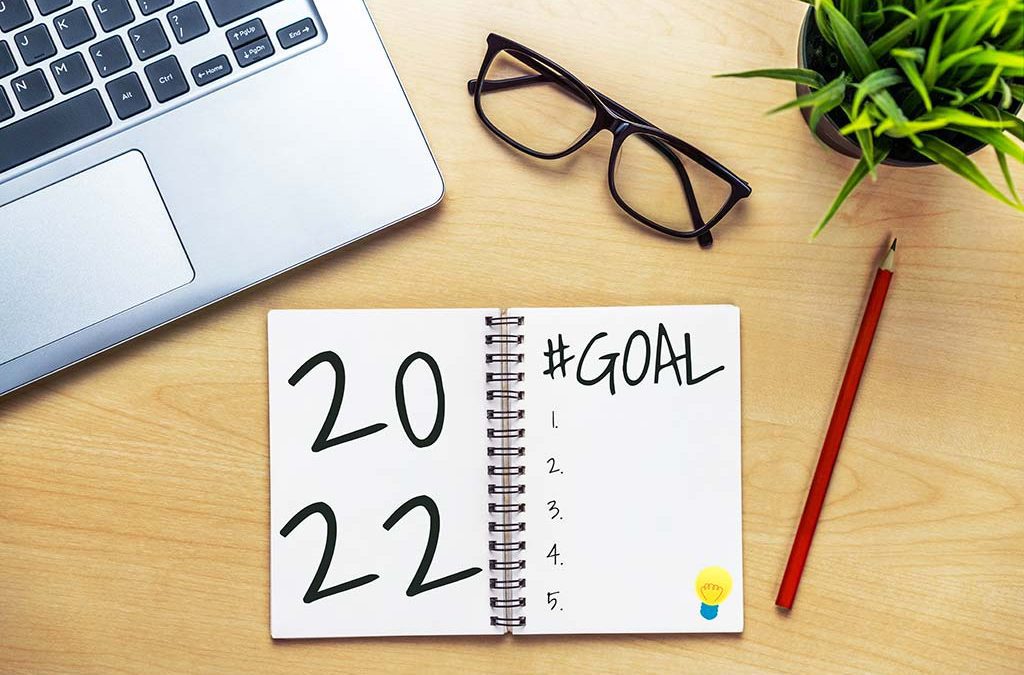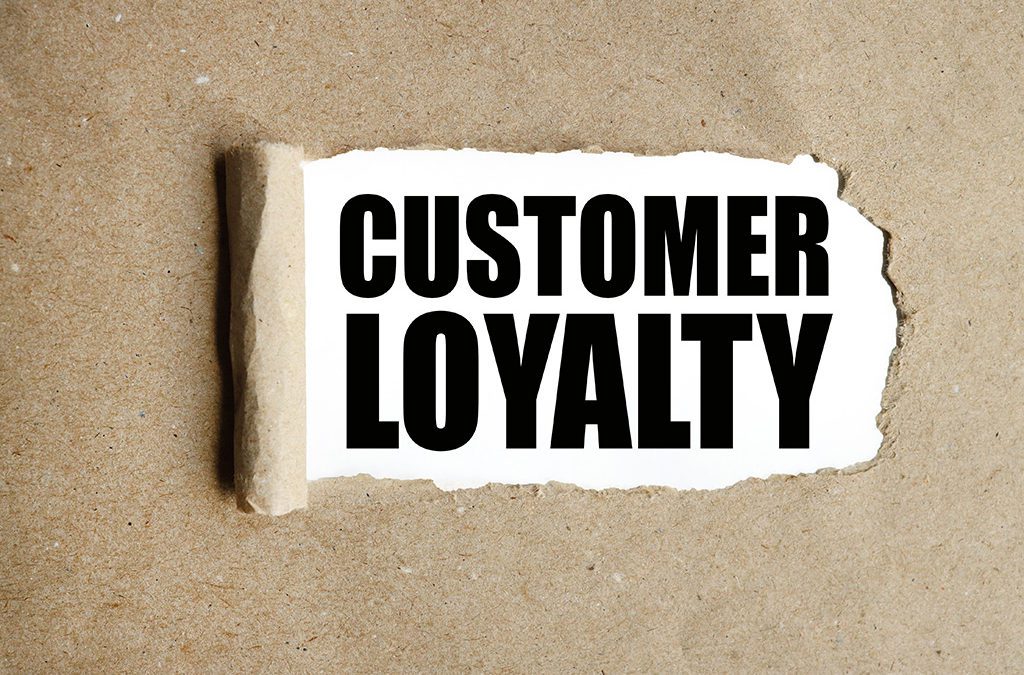
May 2, 2022 | Current Event, ICONIC, Personal Distinction
At a time when our world seems increasingly divided and fraught with conflict, it is more important than ever to be kind and compassionate toward one another. Whether interacting with customers or colleagues, friends or family members — or even total strangers — we should always try to display good intentions and show courtesy and respect.
This pervasive sense of meanness and anger in today’s culture is constantly perplexing to me. It’s showing up in our businesses and displaying itself in almost every walk of life.
A primary aspect of a great business and extraordinary customer experiences is simple respect and kindness. Here are three steps we can take to display that we care:
1. Listen more and talk less. We can learn a lot about someone by genuinely listening to them without interruption or judgment.
2. Seek first to understand, then to be understood. This is a principle from Stephen Covey’s classic book “The 7 Habits of Highly Effective People.” It means that we should try to see things from the other person’s perspective before communicating our point of view.
3. Put ourselves in the other person’s shoes. This is similar to the previous point, but it takes it one step further. Not only should we try to understand where the other person is coming from, but we should also try to empathize with them and feel what they are feeling.
Just because a person is from a differing political viewpoint, or a dissimilar religion or a different race or gender doesn’t mean they deserve disrespect. Today’s social media has created a lot of “keyboard courage” — people sending messages via Twitter or Facebook that they would have difficulty saying in person to someone. However, part of what we’re seeing is a lowering of the standards of common courtesy. After you get away with bad behavior online for a while, perhaps it becomes easier for many to assume that you can act that way in person, as well.
Here’s a fundamental challenge when it comes to this problem. As I state in the book “ICONIC,” when it comes to reciprocal respect, the key is that YOU must go first.
- This is NOT to say you should alter your opinion.
- It’s not to say you should diminish your beliefs.
- However, you cannot wait for the other person to show you respect before sending it their way.
That kind of “I’ll do it if you do” approach will never work! It is also antithetical to the principles of respect and kindness. Instead, we need to proactively show others that we care about them — not just with our words but with our actions.
By practicing these small acts of kindness and courtesy at every opportunity, we can bring more compassion and empathy into the world around us. If more people made a conscious effort to be just a bit gentler toward one another, perhaps we could begin to heal some of the wounds currently ripping our society apart.
Even if we only make a slight difference in this world, that would still be worth doing. Let’s try a little kindness today — in our daily interactions with others, as well as in our broader efforts to create a better society.

Mar 30, 2022 | Current Event
With all the recent fervor over the confrontation between Will Smith and Chris Rock at the Oscars® over a comment made about Jada Pinkett Smith, there’s one character I have yet to see explored in the aftermath: G.I. Jane.
Several years ago, when I was building my business as a speaker, author, and consultant, I had the most remarkable “side hustle” one could imagine. I was a movie reviewer, syndicated to about 80 television newscasts in the U.S., Canada, and Australia. Each week, I’d offer my opinion on the latest film releases — and back in August 1997, my review was about a Ridley Scott-directed movie that starred Demi Moore, entitled “G.I. Jane.”
While I haven’t been able to locate my exact review, I still remember I gave the film three-and-a-half stars out of five. I also recall that my sentiments about the movie precisely aligned with those of my friend, the late Roger Ebert. He wrote:
“She (G.I. Jane) just wants to prove a woman can survive Navy SEAL training so rigorous that 60 percent of the men don’t make it.”
“Jordan O’Neil (G.I. Jane’s name in the film – Demi Moore’s character) is a Navy veteran who resents not being allowed into combat during the Gulf War. Now there’s a move underway for full female equality in the fighting forces. Its leader, Sen. Lillian DeHaven (Anne Bancroft), wants no more coddling: ‘If women measure up, we’ll get 100 percent integration.’ O’Neil is selected as a promising candidate, and reports for SEAL training….”
“The training sequences are as they have to be: incredible rigors, survived by O’Neil. They are good cinema because Ridley Scott, the director, brings a documentary attention to them, and because Demi Moore, having bitten off a great deal here, proves she can chew it. The wrong casting in her role could have tilted the movie toward ‘Private Benjamin,’ but Moore is serious, focused, and effective.”
“Demi Moore remains one of the most venturesome of current stars, and although her films do not always succeed, she shows imagination in her choice of projects. It is also intriguing to watch her work with the image of her body.”
“…all of these women (Moore’s previous roles), and now O’Neil (G.I. Jane), test the tension between a woman’s body and a woman’s ambition and will. G.I. Jane does it most obviously, and effectively.” (from “G.I. Jane review” on RogerEbert.com)
Now, almost 25 years later, Demi Moore’s striking appearance — not just her physique but the military-look haircut — is remembered more than the primary point of the movie: smart, strong, and powerful women can and should be equal contributors in any endeavor.
I’m not naive, and I would not suggest that this strong female character was what Chris Rock had in mind when he said what he did about Jada Pinkett Smith. He was likely poking at her hairstyle, which he may or may not have recognized was due to her struggles with alopecia.
However, every person possesses the ability to control how he or she responds to situations – even if you’re on the front row of the Oscars®. You can change and better manage your responses when you choose to change and improve your perspective.
What if Will Smith and Jada Pinkett Smith had chosen to perceive Chris Rock’s comment as a positive one? What if the Smiths had confidently smiled and said, “Thank you for the compliment.” How would their reaction have changed the tone of the conversation? My guess is that it would have prevented a highly unnecessary confrontation.
Here is the ultimate irony in all of this: Will Smith struck Chris Rock for calling his wife a character who proved herself to be every bit the equal of the best of men…a powerful woman who wanted to stand up for herself and not have anyone else do it for her.
What if more people decided to choose a positive perspective when faced with difficult comments or situations? It could change the way we react and the way we behave. I believe it would lead to more productive and amicable outcomes.
When we change our perspective, we can improve our response.

Feb 12, 2022 | Business Distinction, Current Event, Sales & Retail
Want a tip? Go pick up your pizza at Domino’s! They will give you a $3 tip if you go get your pizza rather than have them deliver it to you.
Thanks to my friend, Dwayne Long, I learned of this new approach from Domino’s. Dwayne sent me a link to the new Domino’s TV commercial, which says, “When you order carryout online from Domino’s, you’re no longer just a customer. You’re a delivery driver.”
Really, you don’t actually get a $3 tip. Instead, you get a coupon for $3 off your next Domino’s order.
(Which is kind of cheating, if you ask me. Imagine giving my Domino’s delivery driver a coupon for $3 off some future purchase somewhere instead of cash? I doubt the driver would appreciate my tipping methodology!)
According to the Wall St. Journal, “Domino’s latest offer comes as the pizza chain, along with many other businesses across the U.S., continue to struggle with staffing levels. A spokeswoman for Domino’s said the company needs more delivery drivers at its U.S. stores.”
It’s something everyone in business today understands. Staffing is an issue for almost every industry.
However, there’s a significant problem with this decision by Domino’s – and it is a point that is essential for every business today!
Domino’s brand is about DELIVERY…not pizza! Few believe Domino’s has the world’s best pizza — despite their recent efforts to improve the quality of their product. Their competitors — Pizza Hut and Papa John’s, for example — have built businesses on having great pizza. Domino’s established their empire on getting their pizza to you hotter and quicker than anyone else.
Domino’s has spent years creating their business around delivery, not carryout.
- Here’s the central problem: Promoting and incentivizing customers to bypass delivery seems to encourage customers to negate the primary aspect of their brand.
The Domino’s Delivery experience is the company’s primary asset. Let’s face it, Domino’s practically owns the “delivery” category in pizza. Domino’s should not compromise its brand for the sake of momentary convenience. They will suffer more in the long term by neglecting their brand.
By promoting carryout over delivery, they degrade their most valuable asset. They minimize the very aspect that makes them distinctive in the marketplace.
Contrast this effort with that of my friends at Pizza Hut. They’ve moved all their chips in on their product. Notice their tagline now: “No one outpizza’s the Hut.”
Here’s the critical factor: Pizza Hut has doubled down on the aspect they believe is their brand.
Yes, there is a critical shortage of quality team members in almost every industry right now. However, the intelligent business will never sacrifice its distinction for a short-term fix. Businesses need to follow the Pizza Hut example: invest more in your point of distinction, never minimize it.
Being distinctive is always superior. Domino’s should never compromise its brand for the sake of appearing “convenient.” You shouldn’t either!

Dec 30, 2021 | Business Distinction, Current Event, Personal Distinction
This is the time of year when you’ll see a plethora of posts about how to launch your New Year positively. You’ll also see countless conversations on television news about your resolutions for the coming year.
Well… here’s one more — however, I’m going to suggest you need something OTHER than New Year’s resolutions. Don’t make the same mistake as last year and set resolutions — set goals! You need New Year’s Goals.
New Year’s goals are better than New Year’s resolutions.
What’s the difference between New Year resolutions and New Year goals? You probably don’t remember what last year’s resolutions were – they were just to do something more meaningful, like lose weight or get in shape. Resolutions kind of happen by themselves.
With a resolution, you say to yourself what you want — then you try to find the discipline to achieve it. The most cited example to prove this point is to look at how crowded fitness centers are in January versus how relatively empty they are in May.
Goals are different.
Goals must be stated to get done. You have to write down your New Year’s goals. This enables you to create specific action steps toward success.
So how do we set New Year’s goals? There are many ways, but I’m going to suggest a process that has worked for me in the past.
The first step is to take inventory of where you are right now – what’s working and what isn’t? This will help you set some goals around things you want to continue doing, as well as areas you’d like to improve.
The second step is to get clear about what you want – in other words, your goals. It doesn’t mean they have to be lofty or pie-in-the-sky; instead, it’s crucial that they inspire you and make you feel good just thinking about them. You don’t say you’re going on a vacation “somewhere.” You’re specific — you’re heading to Disney World or Vegas, for example. The same is valid with your goals. You have to be precise.
The third step is to create a timeline for your goals – when do you want to achieve them? Again, this doesn’t have to be rigid, but it’s helpful to stay on track. Remember — most people do not set unrealistic goals. Instead, they set unrealistic time frames.
The fourth step is to come up with an action plan – what are the specific steps you need to take to achieve your goal? Break it down into concrete, precise steps. This will help ensure you don’t leave out any steps in between.
The fifth step is to take action – the only way to achieve New Year’s goals and resolutions alike is by taking action! Thomas Edison said, “The value of an idea lies in the using of it.”
And finally…commit yourself to your New Year’s goals. Don’t be shy about letting people know what you’re working toward. The more accountable you are, the better chance you will achieve New Year’s goals.
New Year, new you? WRONG. New Year, New GOALS.
So distinctive New Year’s goal-setters – get to it! And have a very happy New Year, and I join you in looking forward to a happy, healthy 2022!
(If you’d like to get your New Year off to a terrific start — consider joining our Iconic Inner Circle! You get to try it out for a month for free…and there’s no obligation to continue. Take it for a test drive! Check it out at https://IconicInnerCircle.com.)

May 2, 2021 | Business Distinction, Current Event, Customer Experience
There probably is not one single entrepreneur or leader of a large enterprise who would suggest they would want their customers to become less loyal to the business. Yet, even with good intentions, that’s exactly what they are creating.
You may have heard me mention (and maybe many times) how much I dislike the show, “Undercover Boss.” It portends to present a boss who becomes enlightened and finds elements to make better for employees and customers. Instead, in my opinion, it exposes how little some leaders know about what front-line employees and customers are experiencing in their engagements with the business.
This is backed up by a recent article in Harvard Business Review reporting on research by Thomas S. Robertson and Paula Courtney titled, “Understanding The Boomerang Effect of Loyalty Programs.”
Their study discovered that during the pandemic, loyalty programs at many businesses made customers less likely to do business with the organization in the future.
Here’s basically what would happen: a “platinum level” (among the best customers a company can have) would call the special platinum line to get help with a problem or issue. However, the staff on that line either weren’t trained to solve that problem – or the staffing had been cut and were not responsive.
This means they were then bounced to a general area of problems solving – meaning it took more calls and more time for great customers to get help than prospects or average customers!
The study reported, “The results showed that members of loyalty programs not only experienced more service friction than other shoppers but were more likely to struggle to have their issues resolved. For instance, loyalty members surveyed in May required an average of four contacts with the company before reaching a solution, and the process took 5.1 days. Nonmembers needed just 2.8 contacts and 3.3 days.”
In ICONIC, I reveal that my study clearly shows that those leaders and organizations at the highest level of distinction display “Reciprocal Respect.” In other words, Iconics know that if they want their customers to be loyal and engaged, then they must be loyal to and engaged with those customers.
As our world inches toward a return to normality, we all need to be asking these three questions:
- What’s important to our customers right now?
- What problems in the immediate situation could cause the most problems for our customers? (It may not be what was most important a year ago!)
- How have we adjusted so we solve their problems and deliver what they want now?
If you want loyal customers, you must determine what is important to them…right now.
And if you’d like to take your business – and yourself – to the ultimate level of distinction, join our Iconic Inner Circle. There is zero risk – you can cancel at any time – and your first month is FREE. Go to https://IconicInnerCircle.com for more information.

Apr 16, 2020 | Current Event, Daily Distinction, Facebook Live
You’ve seen him in major roles on television shows like “24,” “The Resident” — and in major movies like the “Transformers” series and “Black Hawk Down.” See him TODAY on Daily Distinction…our special guest, Glenn Morshower! Glenn will talk about life, personal growth, his success in show business…and MUCH more.






